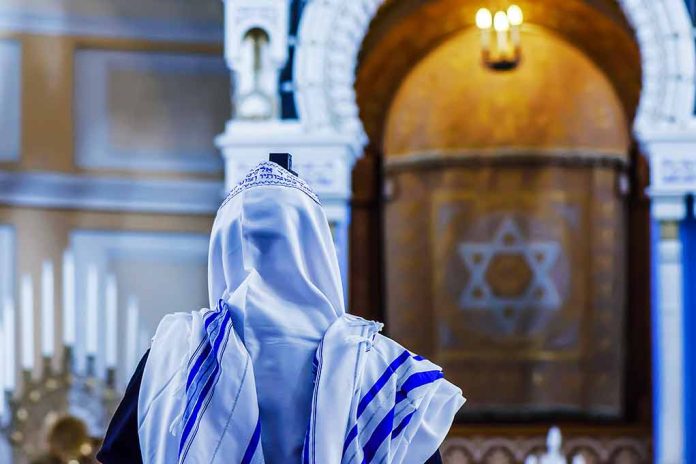
An alarming case in Chicago involving a Mauritanian immigrant brings terrorism and hate crimes under intense scrutiny.
At a Glance
- Sidi Mohamed Abdallahi, an illegal immigrant, faces charges for shooting an Orthodox Jewish man.
- Abdallahi’s phone reveals maps of Jewish landmarks and antisemitic content.
- The incident has sparked discussions about immigration and national security protocols.
- Local policies hinder Abdallahi’s transfer to ICE custody.
Investigation Highlights
Sidi Mohamed Abdallahi allegedly targeted a 39-year-old Orthodox Jewish man on October 26, 2024, while the victim was en route to a synagogue in Chicago. Authorities assert that this attack was not random but the result of careful planning, with Abdallahi using his phone to search for synagogues and Jewish community centers before the incident. The phone also contained antisemitic and pro-Hamas material, raising serious concerns about his intentions.
Law enforcement charged Abdallahi with hate crime and terrorism alongside other charges. Surveillance captured his actions, assisting in his identification shortly after the shooting, when he engaged in a gunfire exchange with police. This incident has reignited debates about immigration vetting, especially regarding individuals from special interest regions such as Mauritania.
“The suspect charged with shooting a Jewish man multiple times on his way to a Chicago synagogue last week is a Mauritanian illegal immigrant who was released into the U.S. last year, Fox News has confirmed.” https://t.co/BtrCJEulr9
— Richard Goldberg (@rich_goldberg) October 30, 2024
Challenges in Law Enforcement
Abdallahi’s background, including his illegal entry into the U.S. and subsequent apprehension in California, raises questions on the efficiency of immigration control systems. He had been residing in the country for at least two years and worked in an Amazon warehouse. Chicago’s local ‘sanctuary’ policies further complicate his transfer to ICE custody, despite a detainer request. These policies prevent cooperation with federal immigration authorities, sparking criticism from numerous quarters.
“This should be a national scandal,” says Richard Goldberg, a senior adviser at the Foundation for Defense of Democracies.
The Chicago Police Department and city officials faced criticism over delays in acknowledging the victim’s religious background, fuelling speculation about a potential cover-up prior to upcoming elections. Debra Silverstein, an Alderman, and Jewish community leaders expressed dissatisfaction with the response, pointing out rising antisemitic sentiment and actions within the city.
Wider Implications
This incident highlights the broader issue of antisemitism and the challenges cities face in addressing and preventing hate crimes. Chicago reported a rise in anti-Jewish hate crimes, with 71 cases recorded in 2024 alone. This has fueled pressure on city officials to improve their response mechanisms and align policies with national security priorities. Mayor Brandon Johnson has been urged to prioritize the safety and security of Jewish communities and address systemic antisemitism.
“This was not anything but a planned attack … an attempted assassination of these people,” Assistant State’s Attorney Anne McCord Rodgers said.
Authorities must decide how to address the underlying issues exposed by this case while balancing legal and ethical considerations. The federal government and local agencies must collaborate more effectively, considering sanctuary policies’ impact on national security. The Chicago incident is a stark reminder to bolster immigration processes and ensure they are robust enough to prevent similar occurrences in the future.








